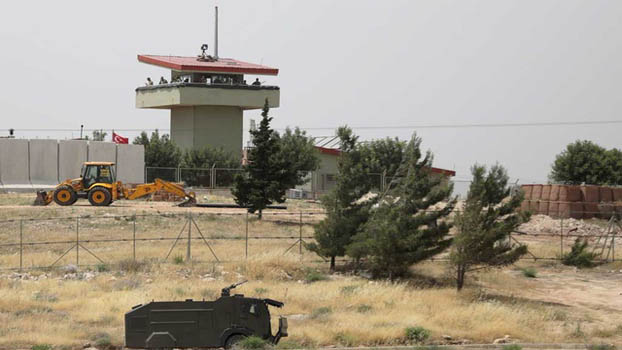Assad hits a wall in Syrian war as front lines harden


President Bashar al-Assad's assault in the northwest has been met with a painful rebel counterpunch that underlines Turkish resolve to keep the area out of his hands and shows why he will struggle to take back more of Syria by force.
More than two months of Russian-backed operations in and around Idlib province have yielded little or nothing for Assad's side. It marks a rare case of a military campaign that has not gone his way since Russia intervened in 2015.
While resisting government attacks, the insurgents have managed to carve out small advances of their own, drawing on ample stocks of guided anti-tank missiles that opposition and diplomatic sources say have been supplied by Turkey.
"They're even targeting personnel with these missiles ... it means they are comfortably supplied," a rebel source said, speaking on condition of anonymity because he was discussing rebel military capabilities. Turkey's foreign ministry did not immediately respond to a request for comment on reports that Ankara has stepped supplies of arms to rebels.
With Turkey committed to the rebels, the battle for the northwest stands in stark contrast to a campaign in the southwest a year ago, when Western and Arab states stood by as Assad and his Russian- and Iranian-backed allies took the area.
Despite Russian backing in the latest fighting, questions have arisen over whether Assad and his allies are entirely on the same page when it comes to the northwest, where Turkey has deployed forces in agreement with Russia and Iran.
Moscow has appeared keen to preserve its ties with Ankara even as its air force bombs in support of Assad: Turkey says Russia has intervened to stop attacks on Turkish forces from Syrian government-held territory.
And this time there has been no sign of a major role for Iranian-backed Shi'ite forces that have helped Assad to victories in parts of Syria that are of greater interest to Iran, including territory near Iraq, Lebanon and Israel.
The capture of the southwest a year ago remains Assad's last big gain. The prospects of further advances have been obstructed not only by Turkish interests in the northwest but also the presence of US forces in the east and northeast.
American troops are still supporting Kurdish-led fighters following a reversal of President Donald Trump's decision last December to pull them all out.
After more than eight years of war, this leaves Syria carved up into areas of US, Russian, Turkish and Iranian influence that seem unlikely to be stitched back together any time soon.
"We could see the front lines harden and remain like that for some time, where either the appetite or capability to fight through them is not there on the part of the regime or its allies," said a Western diplomat speaking anonymously in order to offer a candid assessment.



